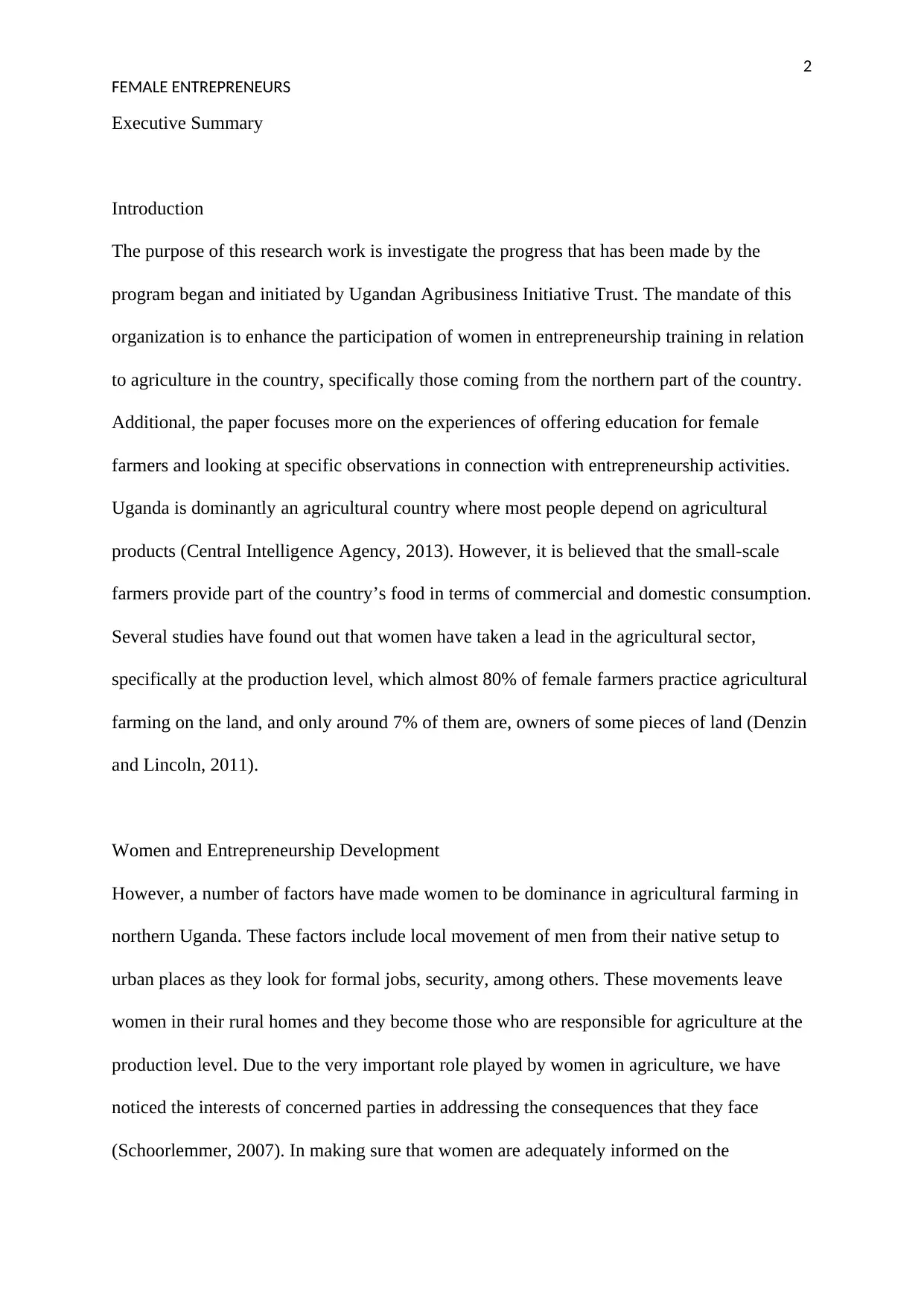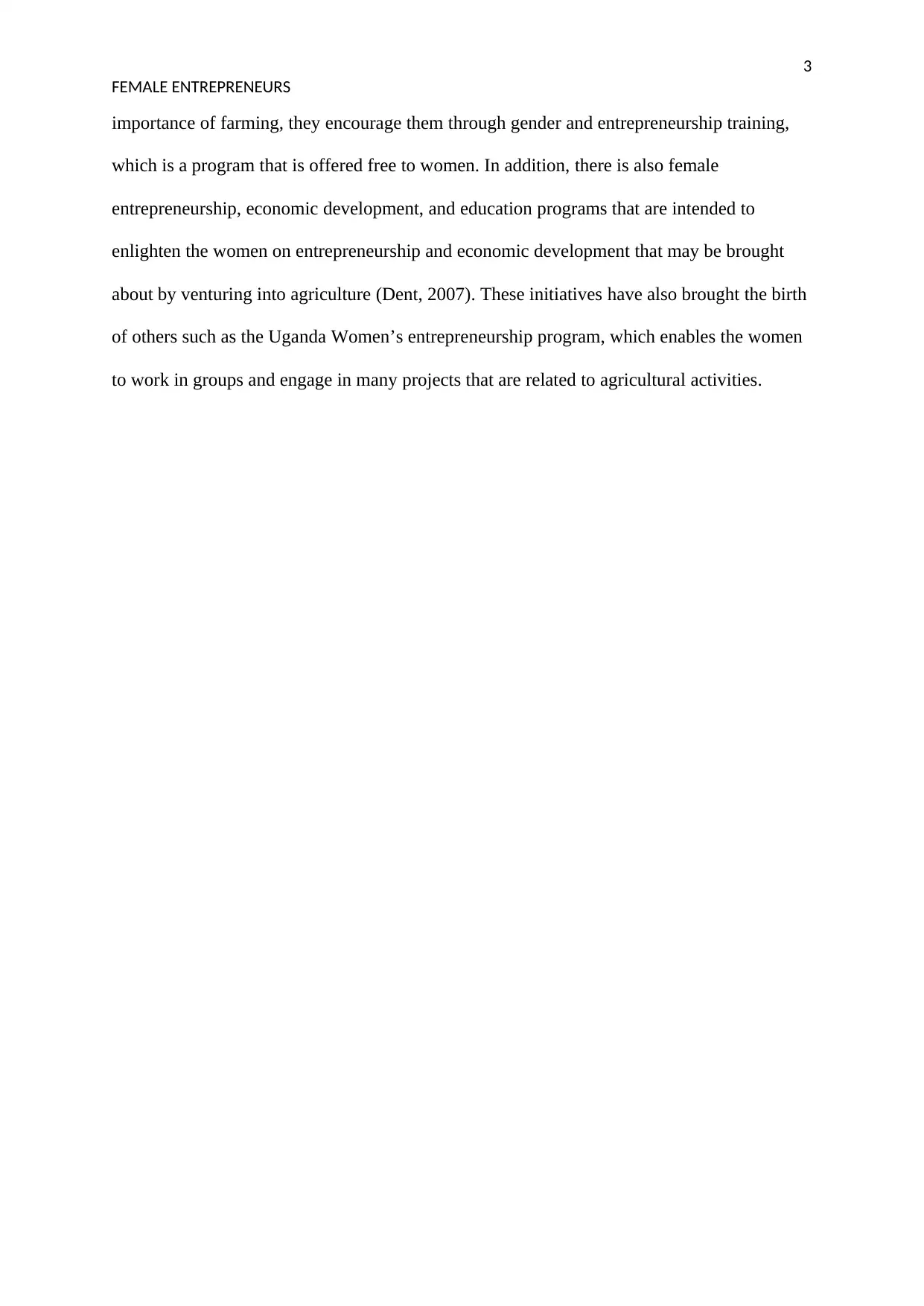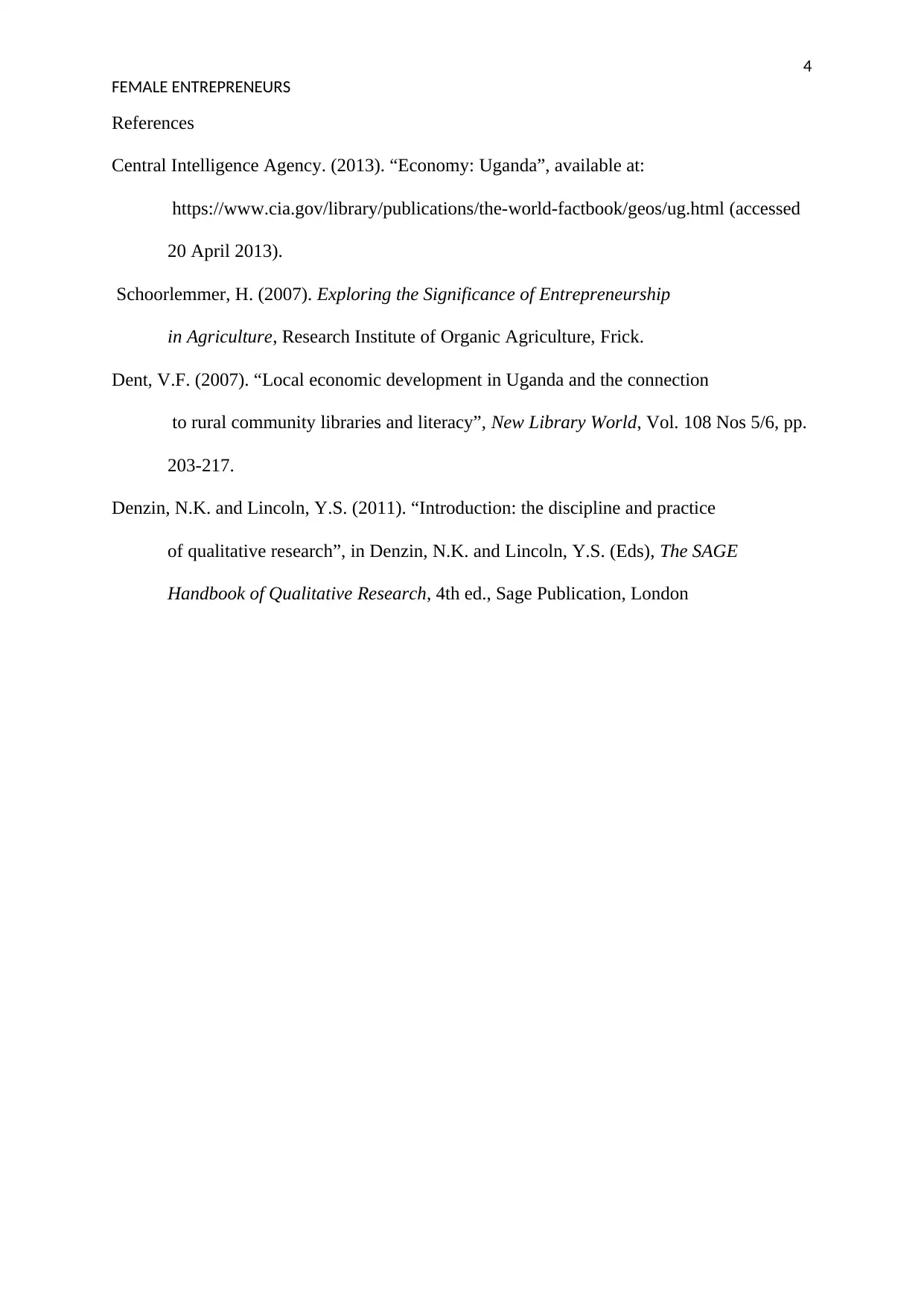Enhancing Women Entrepreneurship: Agriculture in Northern Uganda
VerifiedAdded on 2021/06/14
|4
|580
|454
Report
AI Summary
This research investigates the progress of the Ugandan Agribusiness Initiative Trust in enhancing women's participation in agricultural entrepreneurship, particularly in Northern Uganda. It focuses on the experiences of educating female farmers and observations related to entrepreneurship activities. With Uganda being dominantly an agricultural country, small-scale farmers play a crucial role in food production. Women lead in agricultural production, but face challenges like limited land ownership. Initiatives such as gender and entrepreneurship training, along with programs like the Uganda Women’s entrepreneurship program, aim to empower women through education and group projects in agriculture. This report references key sources to support its analysis of women's involvement in Ugandan agriculture and entrepreneurship.
1 out of 4





![[object Object]](/_next/static/media/star-bottom.7253800d.svg)